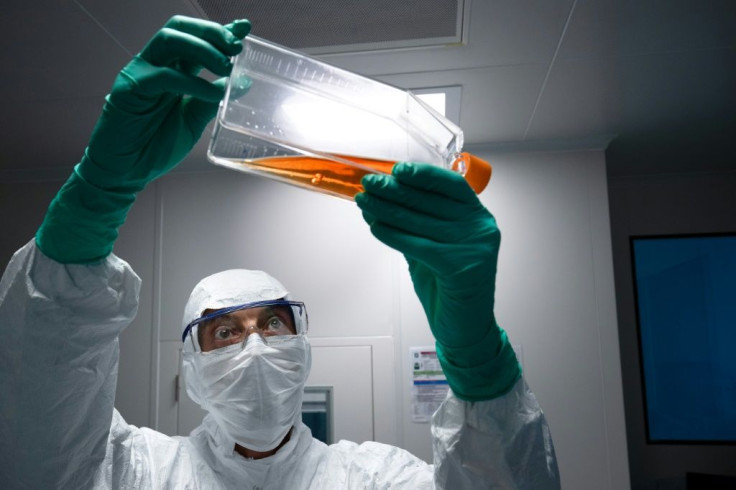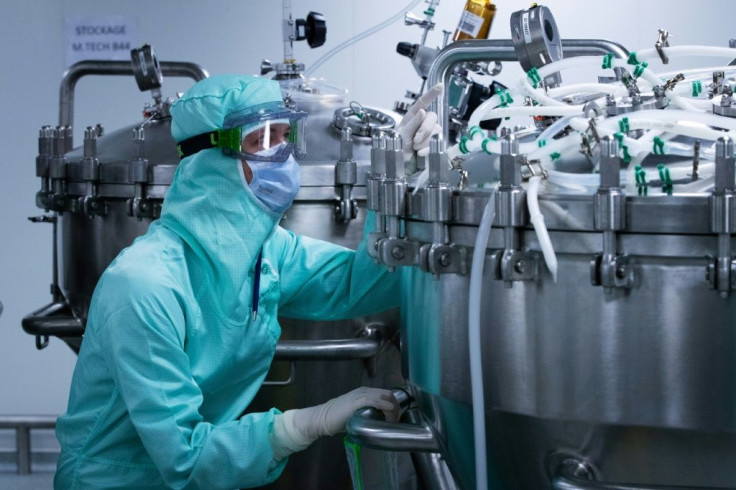Coronavirus Vaccine: Only 42% Of Americans Plan To Get Vaccinated, Poll Reveals

KEY POINTS
- Americans continue to hold back on committing themselves to inoculations with the new COVID-19 vaccine
- Only 4 in 10 Americans say they plan to get vaccinated
- That number was almost 6 in 10 in early May
Only four in 10 American adults (42%) now plan to have themselves inoculated with a potential COVID-19 vaccine compared to more than half (55%) who said they would do so less than three months ago.
The stunning national rise in distrust in vaccinations among Americans was laid bare in a series of polls conducted since May by Yahoo News and YouGov. These polls show a continuing overall drop in the number of Americans willing to submit to voluntary vaccinations.
The May 6 poll shows 55% of Americans saying "yes" when asked if they planned to take the new COVID-19 vaccine once one is approved. This high initial figure, however, has continuously fallen in the three polls since, including the latest one taken July 30.
The number tumbled to 50% in the May 22 poll, 46% in the June 14 survey, and 42% in the July 30 poll. The 42% figure is the lowest to date.
The hesitance and mistrust of vaccinations extends to all political groups: Democrats, Republicans and Independents. It also threatens to render ineffective whatever plans the federal government has for mass inoculations starting 2021.
Epidemiologists have asserted that at least 60% of a population should be vaccinated to stop the raging COVID-19 pandemic, which has now inflicted 4.9 million cases and more than 160,000 deaths in the United States, based on Worldometer data. A 75% to 80% inoculation rate would be better.
“It’s not a vaccine that will save us,” Dr. Ashish Jha, Harvard Global Health Institute director, told Yahoo! “It’s vaccination.”
The relentless misgivings among Americans about the safety and efficacy of a vaccine, and the true value of inoculations threaten to upend the goal of attaining widespread herd immunity by natural and medical means.
Political analysts say this mistrust appears widespread among Democrats and Republicans but for different reasons. Democrats are worried the Trump administration is cutting corners in its haste to live up to President Donald Trump's campaign promise to have a vaccine ready for use by December.
On the other hand, Republicans distrust doctors and the medical community in general. The influence of anti-vaxxers is also strong among Republicans.
Doctors, however, point out many more lives will be saved even if only 42% of Americans agreed to be vaccinated.
Another poll but by a different organization released June 10 showed only 29% of Americans saying they definitely will get the new COVID-19 vaccine. Thirty-six percent said they probably will.
The poll conducted by Fairleigh Dickinson University also shows 18% of respondents saying they probably won't be vaccinated, while 17% said they definitely won't be vaccinated.
“The hesitation that Americans have, and their distrustful view of vaccine development may serve as an obstacle to vaccine acceptance in the future," said Julie Kalabalik-Hoganson, chair and associate professor of pharmacy practice at the university.
"A significant amount of education on the benefits and risks of the vaccine will need to be provided to the public."

© Copyright IBTimes 2025. All rights reserved.





















